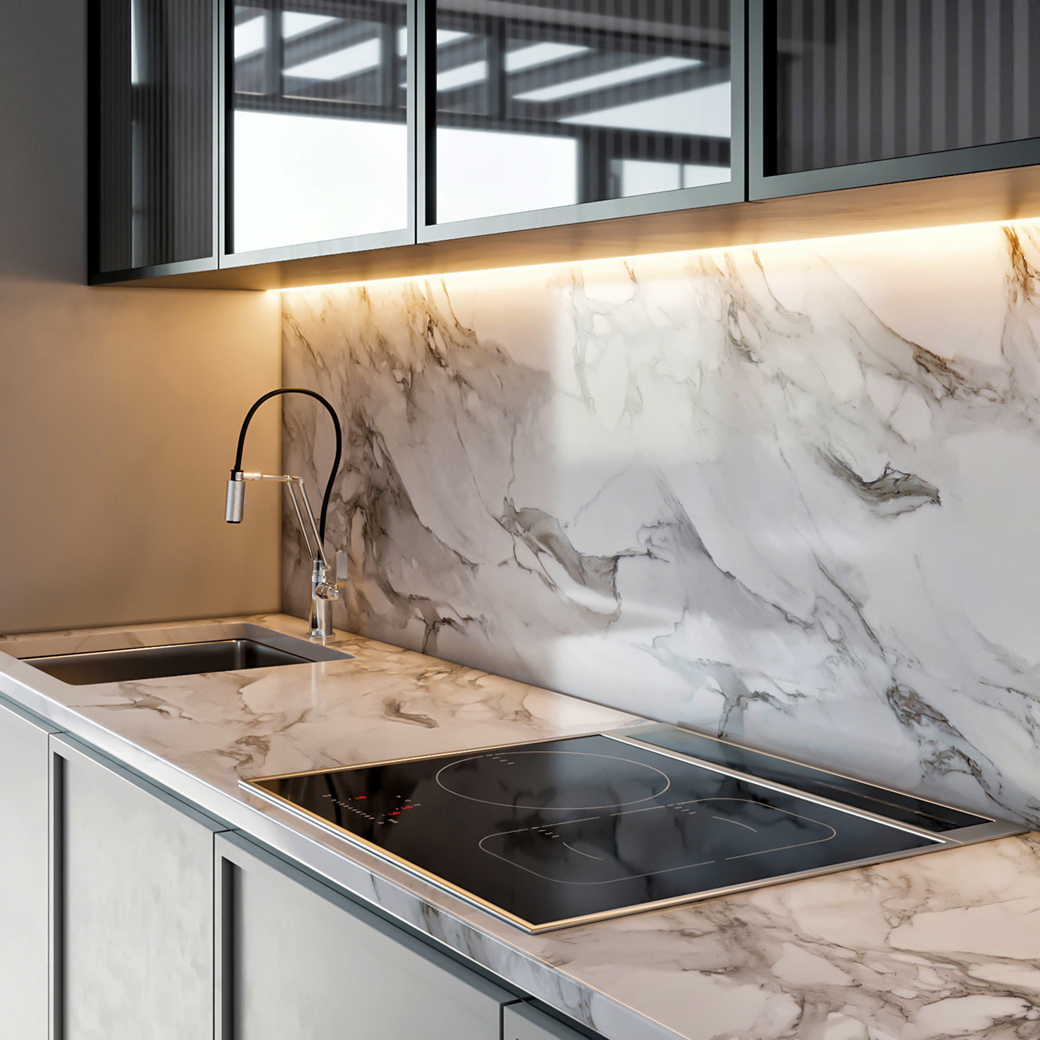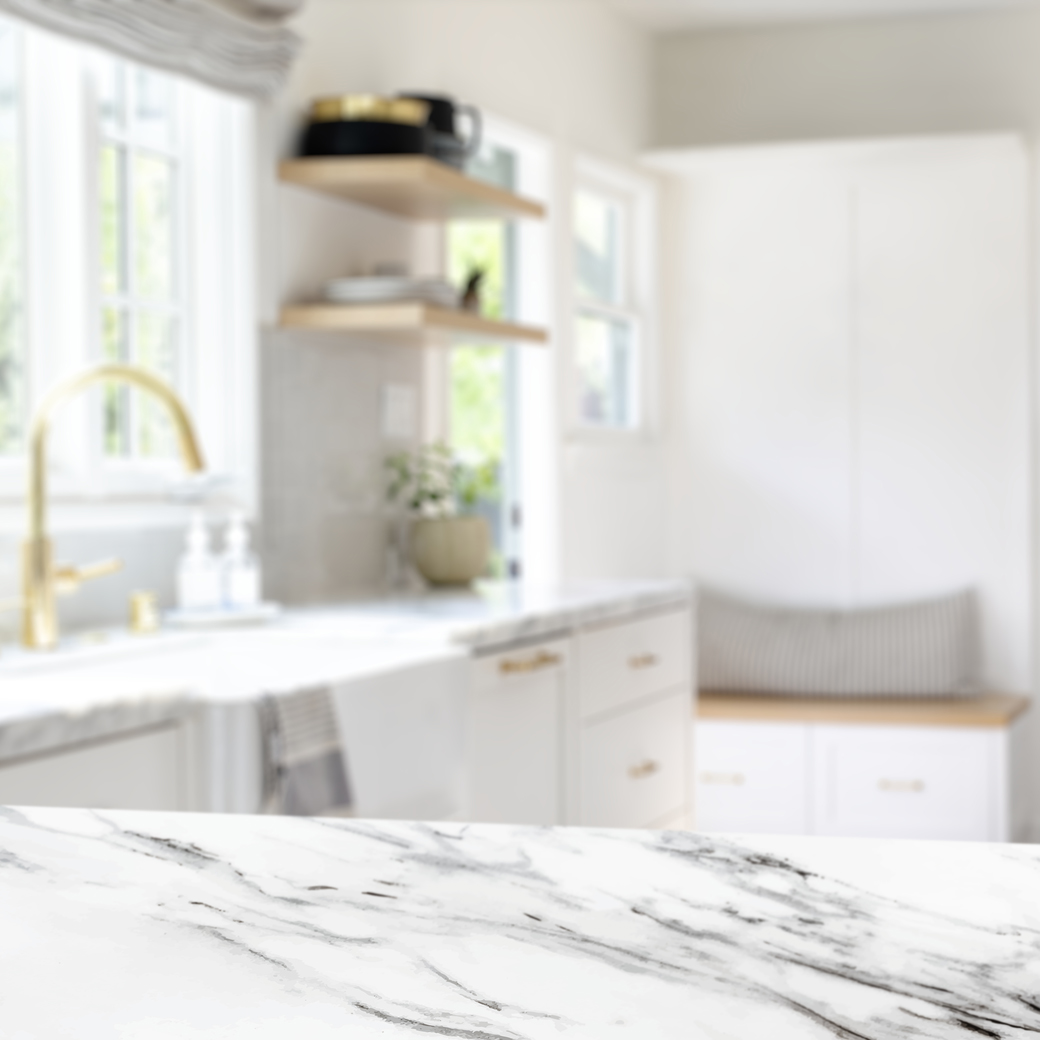
Everything You Need to Know About Quartz Countertops
Your kitchen deserves countertops that combine style and durability. Find out if quartz is the right choice for you.
The kitchen is often the heart of the home, a gathering place for family and friends. Naturally, you want it to be inviting and practical. With the hustle and bustle of daily life, having durable countertops is essential, especially if you have little ones helping out in the kitchen. Quartz countertops have become a popular choice for kitchens, but before you make a decision, it’s crucial to understand the advantages and disadvantages and explore alternative options.
Pros of Quartz Kitchen Countertops
1. Durability: Quartz countertops are exceptionally durable, crafted from a blend of natural stones and stone-like materials bonded with resins. Manufacturers press these materials into solid, nonporous slabs, ensuring your countertops won’t chip or crack from everyday use, even with little ones assisting in the kitchen.
2. Stain-Resistance: Quartz boasts high stain resistance due to its nonporous surface. However, it’s worth noting that certain substances like red wine, coffee, tea, tomato sauce, and juice can stain quartz if not promptly cleaned. Stains occur when these liquids interact with the resin. To maintain its pristine appearance, opt for gentle cleaners over harsh chemicals. The best part? Quartz is relatively low maintenance and doesn’t require sealing.
3. High Customizability: Thanks to advancements in engineered quartz, you have an array of patterns to choose from, whether you want a custom-made design or the look of granite or marble.
Cons of Quartz Countertops
1. Pricey: Quartz tends to be on the expensive side when compared to materials like marble and limestone. On average, quartz kitchen countertops cost between $40 to $100 per square foot when installed.
2. Prone to Heat Damage: While quartz is heat-resistant, approximately 10% of a quartz countertop slab is not. Placing hot cookware directly on a quartz surface can lead to unsightly stains.
3. Requires Professional Installation: Installing quartz countertops is generally not a DIY project due to the material’s weight. It’s essential to enlist professional help to ensure your kitchen can support the countertops.
What to Look for in a Quartz Countertop
When selecting a quartz countertop, keep an eye out for these quality indicators:
Cohesive Coloring: Examine separate slabs from the quartz you intend to purchase. Are they consistent in color?
Coloring Through the Surface: Ensure that the veins and colorations visible on the surface of the quartz extend throughout the entire slab.
Consistent Aggregates: Aggregates, the pebbles along the countertop’s edges, should maintain consistency in size throughout.
Alternatives to Quartz Countertops
Your kitchen countertops should align with your lifestyle and the aesthetics of your space. Before making a decision, explore various options, including:
Marble: While marble is often comparable in price to quartz, it offers a unique and elegant appearance. Marble has a porous surface, making it susceptible to stains, especially from acidic substances like tomato sauce or lemon juice. Quartz, although nonporous, can still stain.
Slate: Slate is equally durable as quartz but features more uniform designs and aggregates. It tends to be more expensive than quartz and requires regular sealing.
Granite: Granite countertops are a natural option compared to the engineered design of quartz. While prices may be similar, granite necessitates more maintenance due to the need for regular resealing.
The Cost of Quartz Counters
The cost of quartz countertops depends on factors such as brand, design, thickness, project size, and installation. On average, expect to invest between $1,750 and $3,000 for quartz counters in an average kitchen with 30 square feet of countertop space. The average price hovers around $2,300. To put this into perspective, other popular countertop choices like granite can range between $2,500 and $5,000 for 30 square feet installed, while marble may cost between $2,000 and $7,000.
Questions for Your Contractor
Before hiring a professional to install your new countertops, ask the following questions:
– Is your team experienced in installing quartz countertops?
– Will replacing my kitchen countertops require a permit?
– What are your charges for countertop installation, including the removal of my old countertops?
– Will you handle the relocation of my appliances and fixtures during installation, or is that my responsibility?
– Do you have insurance that covers any potential damage to my home or countertops during installation?
– Do you offer a warranty in case of issues with the countertops after installation?
These questions, along with the information provided, will help you make an informed decision regarding whether quartz countertops are the ideal choice for your kitchen.

 Facebook
Facebook
 X
X
 Pinterest
Pinterest
 Copy Link
Copy Link




